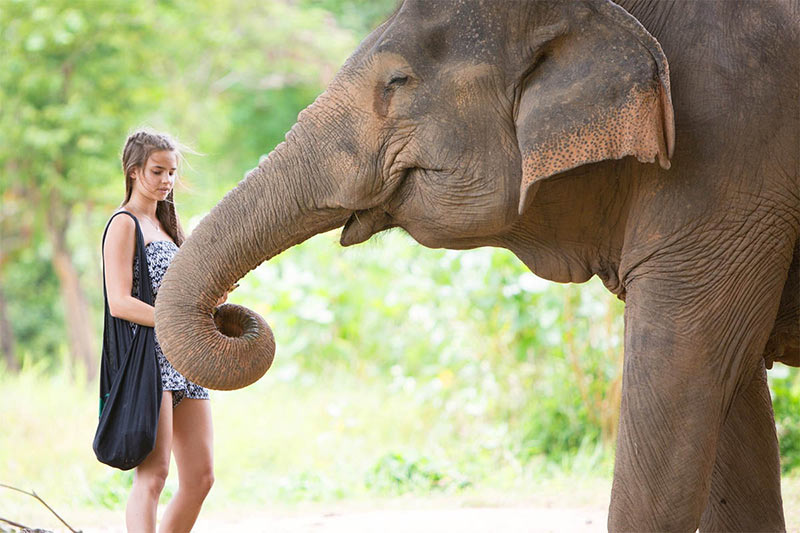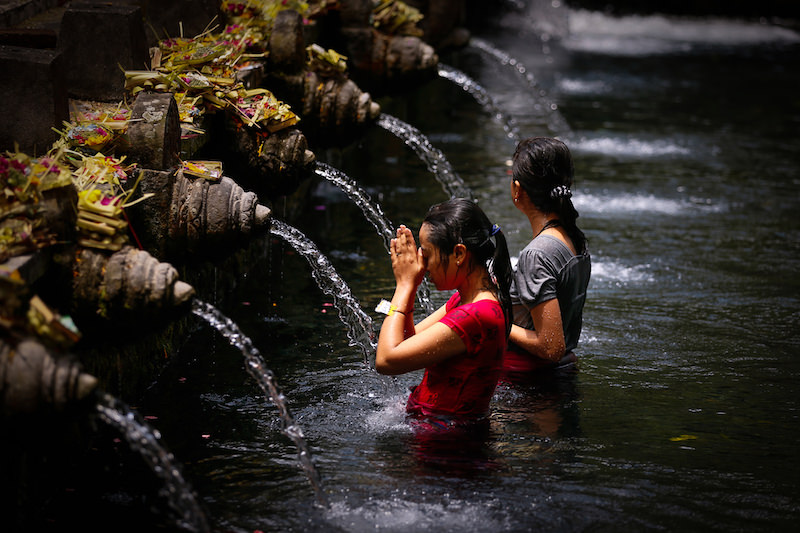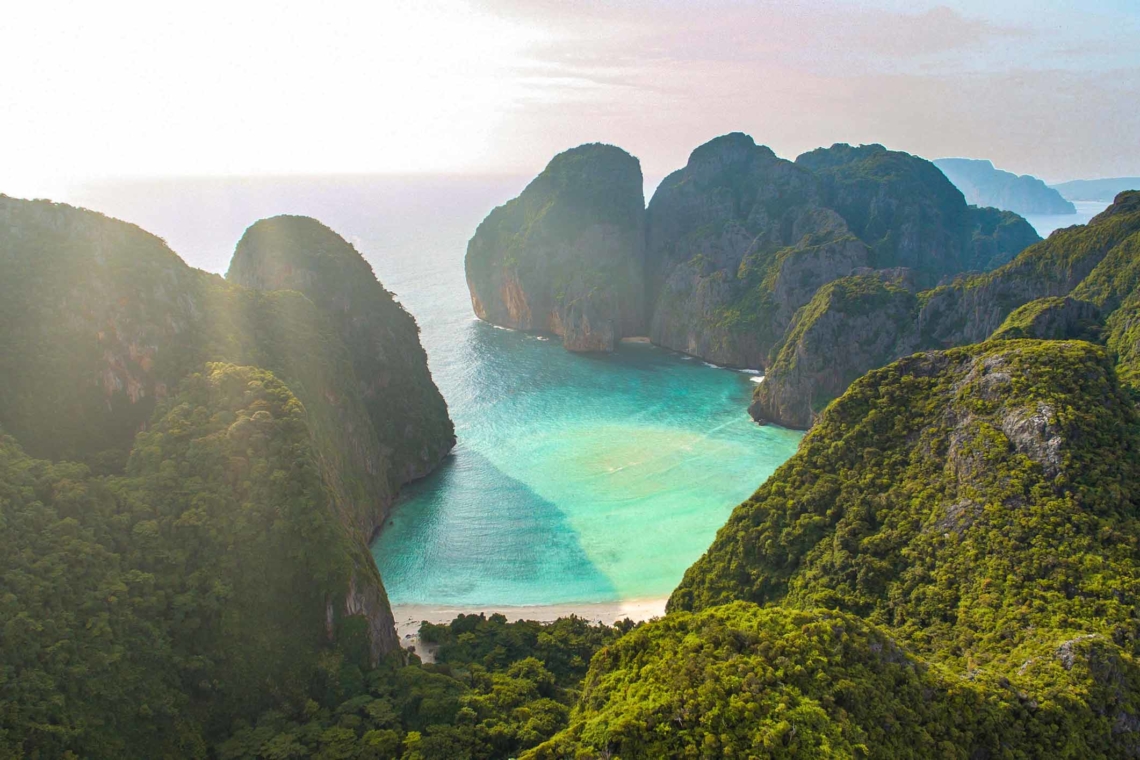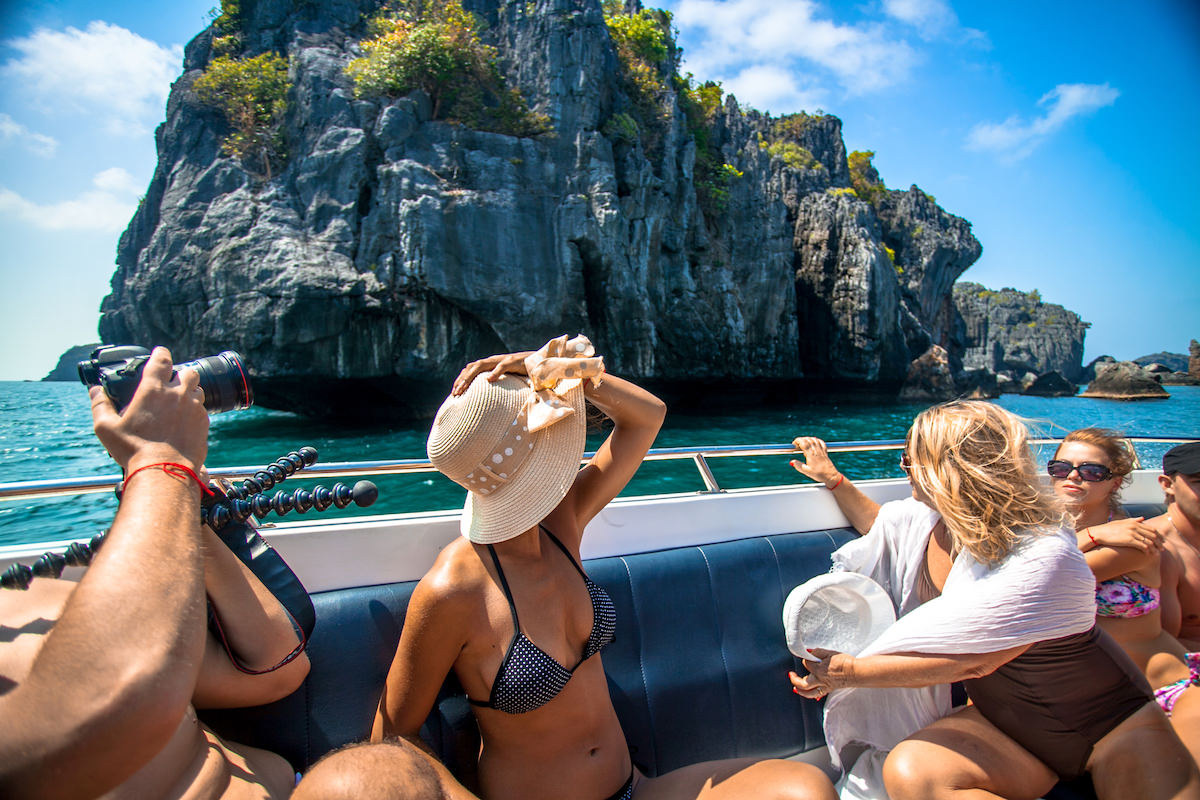Experiential travel, where vacationers want to enjoy adventures and activities that are all about uplifting and memorable experiences, is part of a new wave of conscious travel that is sweeping across the world. Today’s vacationers are looking for experiences that enrich their lives and this includes ones that connect with themselves, local communities, and a destination’s environment in a positive way.
This feel-good philosophy is not reserved just for the millennials, either. Gen Z, Y, and X are also sharing this deeper understanding of how travel today needs to be responsible, socially aware, and mindful. For luxury travelers in Southeast Asia, whether visiting the spectacular Thai islands or the beautiful island of Bali in Indonesia, there are plenty of opportunities to interact and experience destinations in a conscious way.
Ethical Wildlife Activities
Most people know that in popular tourist destinations in Southeast Asia, there have been plenty of reports about unethical elephant camps, even with ivory being illegally traded too. It’s understandable that there’s something magical about getting up close with these magnificent creatures.
However, while there are elephant sanctuaries that do great work in protecting wildlife and offer ethical elephant experiences, there are many that don’t focus on the welfare of the animals. It’s up to these regions to take a stand against these types of practices by avoiding trips with elephant rides and any attractions where animals are not kept in the best conditions.

On Koh Samui, the Elephant Sanctuary Samui promises respectful experiences and is the first of its kind on the island. It is supported by Save Elephant Foundation and Asian Elephant Projects. On Phuket, there’s also the Phuket Elephant Sanctuary which is the first rehabilitation center for elephants on the island.
Meanwhile, a great day out during a vacation in Phuket is to support The Gibbon Rehabilitation Project by visiting the quiet north of the island in the forests of Khao Phra Thaeo National Park. The focus here is on rehabilitating endangered and rescued gibbons and releasing them back into the wild.
In Bali, there are many tourist excursions and activities that involve dolphins and these have been brought under scrutiny too by organizations such as the Dolphin Project.
Related article: Responsible Travel – Phuket’s Eco Adventures
Cultural Appreciation
Most of Asia’s holiday hotspots are generally open and friendly to different cultures and behavior that aren’t necessarily acceptable within local communities. However, being culturally aware means taking the time to respect other perspectives, too. Getting away from the beach and being involved with activities where you learn about local people and their cultural heritage, whether through food, art, traditions, and festivals, leads to a more enriching experience that deepens your connection to a destination.

Tourism has changed what were once small fishing communities and some groups are at risk, such as the Sea Gypsies or Mokken of Thailand, who are in fact the oldest inhabitants on the island of Phuket.
Wearing appropriate clothing at temples, while walking around, or even on the beach, is advised. Taking photos of interesting sights is a wonderful way to capture your experience, and many places on this side of the world are all absolutely stunning. However, some tourists can be intrusive, taking photos of monks and local people without considering their privacy.
Related article: Top 6 Temples To Visit in Bali Indonesia
Environmental Awareness
Southeast Asia has a long way to go in terms of mindset when it comes to environmentalism. Plastic bags and straws are rife and the impact of this on marine life is plain to see on a global scale. Individual action is needed, as well as policy changes and regulations on a wider scope.
Doing your bit by using an eco-friendly shopping bag, saying no to plastic and even buying your own reusable straw all helps. It also shows others that letting go on holiday vacations doesn’t mean not caring about the world. Sustainability is important, as is buying locally-sourced products whenever possible, and considering how the things you consume affect the environment around you.

In Thailand, diving, snorkeling, and island-hopping are a big tourist pull. However, the impact of these activities can be devastating. The Thai Government’s taken positive, and certainly necessary, steps to save coral in certain parts of Thailand by closing down beauty spots so that reefs can regenerate.
Divers and surfers who love these rich destinations need to take proactive steps to only use ethical businesses, where marine life and ecosystems are not at risk. In fact, making an effort to seek out responsible water-sport operators is a good example of adopting a conscious travel mindset in Southeast Asia.
There are also many green activities tourists can enjoy that are designed specifically to protect the environment.
Related article: How Climate Change is Affecting Tourism in Asia and What We Can Do About It
Community-Focused Wellbeing
Buying souvenirs from sustainable sources, particularly locally made handicrafts and goods that support communities such as vulnerable children, is a way of giving-back to destinations. Falling in love with the beautiful beaches of Phuket, Samui, and Bali is all good and well. On a more holistic level, however, a greater sense of satisfaction comes from really making a connection with the people and understanding how your visit can be beneficial, or at least not detrimental, to them.
Look for activities that are socially responsible and engage in communities in a healthy way and don’t partake in actions that inadvertently feed into the exploitation of women and children. Even adopting a friendly attitude and learning more about communities can help, as does tipping and not supporting businesses that in any way impinge on human rights and the welfare of workers.
While the economies of Thailand, Indonesia, and Southeast Asian destinations are rising, there are gaps in income levels and many people working in the tourism industry are surviving on a minimum wage. Buy locally-sourced goods and try to put your money back into the hands of local people at a grassroots level wherever possible.






